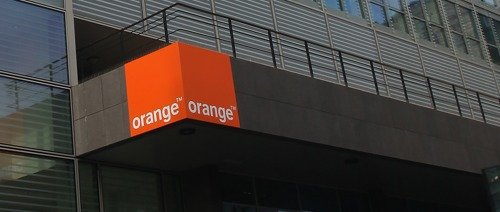
In a move the companies say will secure communications and data for critical infrastructures and government institutions in the country, Airbus, CNRS, Cryptonext Security, Direction Générale de l’Aviation Civile, Orange, Sorbonne Université, Telecom Paris, Thales, Thales Alenia Space, Université Côte d’Azur, Veriqloud and Welinq have announced the official launch of FranceQCI, a programme to deploy aQuantum Communication Infrastructure (QCI) networks in France.
Co-funded by the European Commission, the FranceQCI project will span 30 months, aiming to build a secure quantum communication network infrastructure across the entire European Union (EU), including its overseas territories. The FranceQCI project is also part of the European Quantum Communication Infrastructure (EuroQCI) initiative launched by the EU in 2019.
EuroQCI is one of the main pillars of the EU’s Cybersecurity Strategy for the coming decades, and aims at securing communications and data for critical infrastructures and government institutions. As part of the programme, 26 out of 27 member countries of the EU will have their own scheme to deploy a national QCI network.
FranceQCI comes under the EU’s Digital Europe Programme, and is regarded as being able to make a significant contribution to the objective of deploying a secure quantum communication infrastructure for the EU (EuroQCI) in France, paving the way towards the future European Quantum Information Network (QIN).
As a consortium, FranceQCI includes stakeholders with diverse and complementary expertise and resources. Participating in the effort will be large industries that are world leaders in their respective domains, small and medium-sized enterprises with deep and unique expertise, and academic institutions among the best in the world.
In particular, its objective is to deploy advanced national quantum systems and networks to test quantum communication technologies and integrate them into existing communication networks in France. FranceQCI will aim to capitalise on existing infrastructures in the Paris (ParisRegionQCI) and Nice ([email protected]/Nice) areas to progress towards operational Quantum Key Distribution (QKD) services and contribute to the development of the European technological autonomy.
France QCI also represents a first step towards a global European quantum communication infrastructure that could be implemented with cross-border links to connect similar networks in other countries, either through terrestrial fibre links or space connectivity.
Airbus Defense and Space, Orange, Thales, and Thales Alenia Space will be FranceQCI’s leading industrial partners. Key players in the field of Quantum Communication and post-quantum cryptography – namely Cryptonext Security, VeriQloud and WeLinQ – will also offer technological support. The French civil aviation authority that provides air traffic control service, Direction des Services de la Navigation Aérienne (DSNA), has joined the project as a public institution to allow the consortium to test realistic use cases.
The notable presence of academic institutions is said to be able to allow the development of the educational purpose of the call and build a training environment for all stakeholders in France, including research staff, engineers, and users from public and private entities.
Leading research organisation and academic institutions, namely the Centre National de la Recherche Scientifique, Sorbonne University, Université Côte d’Azur and Télécom Paris, will bring the consortium their expertise and research capabilities. A quantum network will also be implemented in Toulouse (in DGAC/DSNA/DTI lab) to test a real user service for the French Civil Aviation Authority. It will consist of exchanging simulated operational air traffic control data secured by QKD.
Orange has been appointed coordinator of the FranceQCI consortium as the sole telco operator, and will contribute its expertise in network deployment and integration.
In October 2022, Orange presented, for the first time in France, encrypted video streaming over its fibre network using quantum key distribution. This system is designed to use cryptographic techniques to ensure the confidentiality of communications and make any intrusion by a hacker immediately detectable during the key exchange process. Having demonstrated the technological capabilities of the setup, Orange noted that potential customers it was talking to include those in banking and defence, with the former likely to be first for a proof of concept.
“The FranceQCI consortium’s objective is to drive a significant impulse towards a European quantum communication infrastructure that will be able to safeguard sensitive data and critical communications for governmental institutions, data centres, hospitals, energy grids, and more,” said Michaël Trabbia, executive vice-president and CEO of Orange Wholesale.
“We are delighted to benefit from fundings from the European Union through the Digital Europe Program to contribute to one of the main pillars of the EU’s cyber security strategy.”
